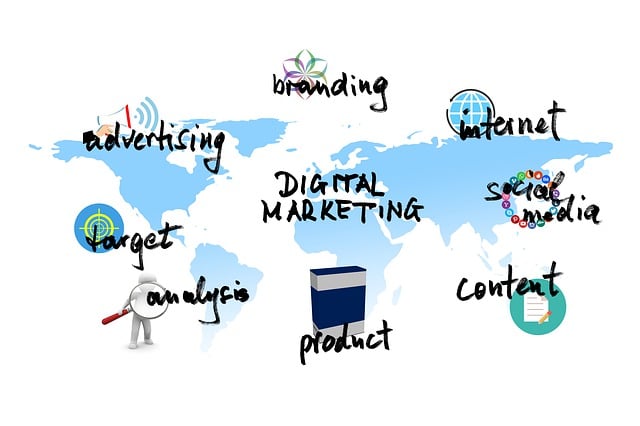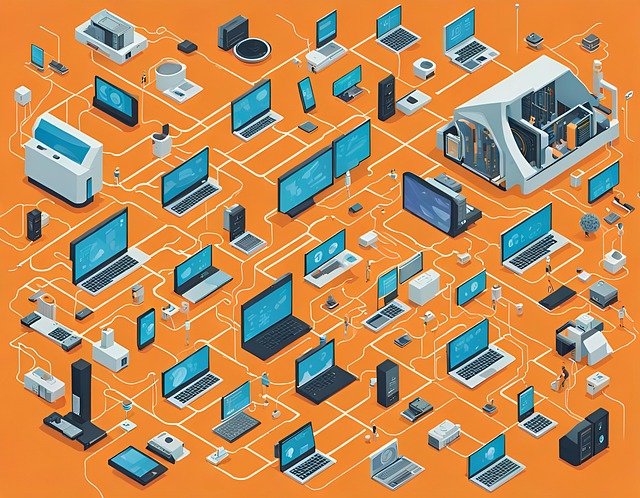AI systems transform automotive marketing by processing customer data for targeted advertising and personalized vehicle recommendations. They automate tasks, enhance customer support with chatbots, and drive sales through predictive analytics. Implement AI strategically, focusing on specific areas of improvement, prioritizing data quality, and refining through pilot tests. Leverage AI for personalized experiences, stronger buyer connections, and efficient marketing strategies in the automotive industry.
In today’s digital era, AI implementation strategies are transforming auto businesses. This article delves into the multifaceted role of Artificial Intelligence in automotive marketing, offering a comprehensive guide for optimal utilization. We explore practical steps for integrating AI systems, highlighting its power to personalize customer experiences and drive growth. By understanding AI’s potential in marketing, auto businesses can revolutionize their strategies, stay competitive, and enhance customer engagement.
- Understanding AI's Role in Automotive Marketing
- Implementing AI Systems: Step-by-Step Guide
- Leveraging AI for Personalized Customer Experiences
Understanding AI's Role in Automotive Marketing

In today’s digital era, AI systems have emerged as powerful tools for automotive business marketing. These intelligent algorithms can analyze vast customer data to gain deep insights into preferences and behaviors, enabling targeted advertising campaigns that resonate with specific buyer personas. By leveraging machine learning capabilities, auto marketers can personalize communications, whether through email, social media, or retargeting ads, increasing the likelihood of conversion.
Moreover, AI enhances marketing efficiency by automating routine tasks such as content creation, lead generation, and customer segmentation. Natural language processing (NLP) facilitates conversational AI chatbots that provide instant customer support, answer queries, and guide prospects through the buying journey. This not only improves customer satisfaction but also frees up human resources to focus on more strategic initiatives, ultimately driving sales and fostering stronger brand loyalty among automotive consumers.
Implementing AI Systems: Step-by-Step Guide

Implementing AI systems in an automotive business isn’t as daunting as it seems. Here’s a step-by-step guide to help you navigate this transformation. Start by identifying specific areas where AI can make a significant impact, such as marketing strategies or predictive maintenance. Conduct thorough research and select suitable AI tools and technologies that align with your goals. Ensure data quality and security before integration, as AI relies heavily on accurate, relevant data.
Next, integrate these systems into your existing infrastructure seamlessly. Train and educate your team to maximize AI’s potential. Pilot tests can provide valuable insights and help refine the implementation process. Finally, continuously monitor and optimize AI performance while staying updated with advancements in automotive AI technology for better results in marketing and overall business efficiency.
Leveraging AI for Personalized Customer Experiences

Auto businesses can leverage AI systems to create personalized customer experiences, transforming their marketing strategies and fostering stronger connections with buyers. By analyzing vast amounts of data from customer interactions, purchase history, and browsing behavior, AI algorithms can identify patterns and preferences. This enables targeted marketing campaigns that deliver tailored vehicle recommendations, exclusive offers, and customized promotions.
For instance, AI chatbots powered by natural language processing (NLP) can engage in dynamic conversations with potential customers, providing instant answers to queries and offering personalized suggestions. Additionally, predictive analytics driven by AI can anticipate future needs based on past purchases and usage patterns, enabling proactive marketing efforts that keep customers engaged throughout their automotive journey.
AI is transforming the automotive industry, and its impact on marketing cannot be overlooked. By implementing AI systems for automotive business marketing, companies can personalize customer experiences, streamline operations, and gain valuable insights into consumer behavior. The step-by-step guide provided offers a clear path to integration, ensuring auto businesses leverage AI’s potential to stay competitive in today’s digital landscape.
